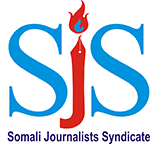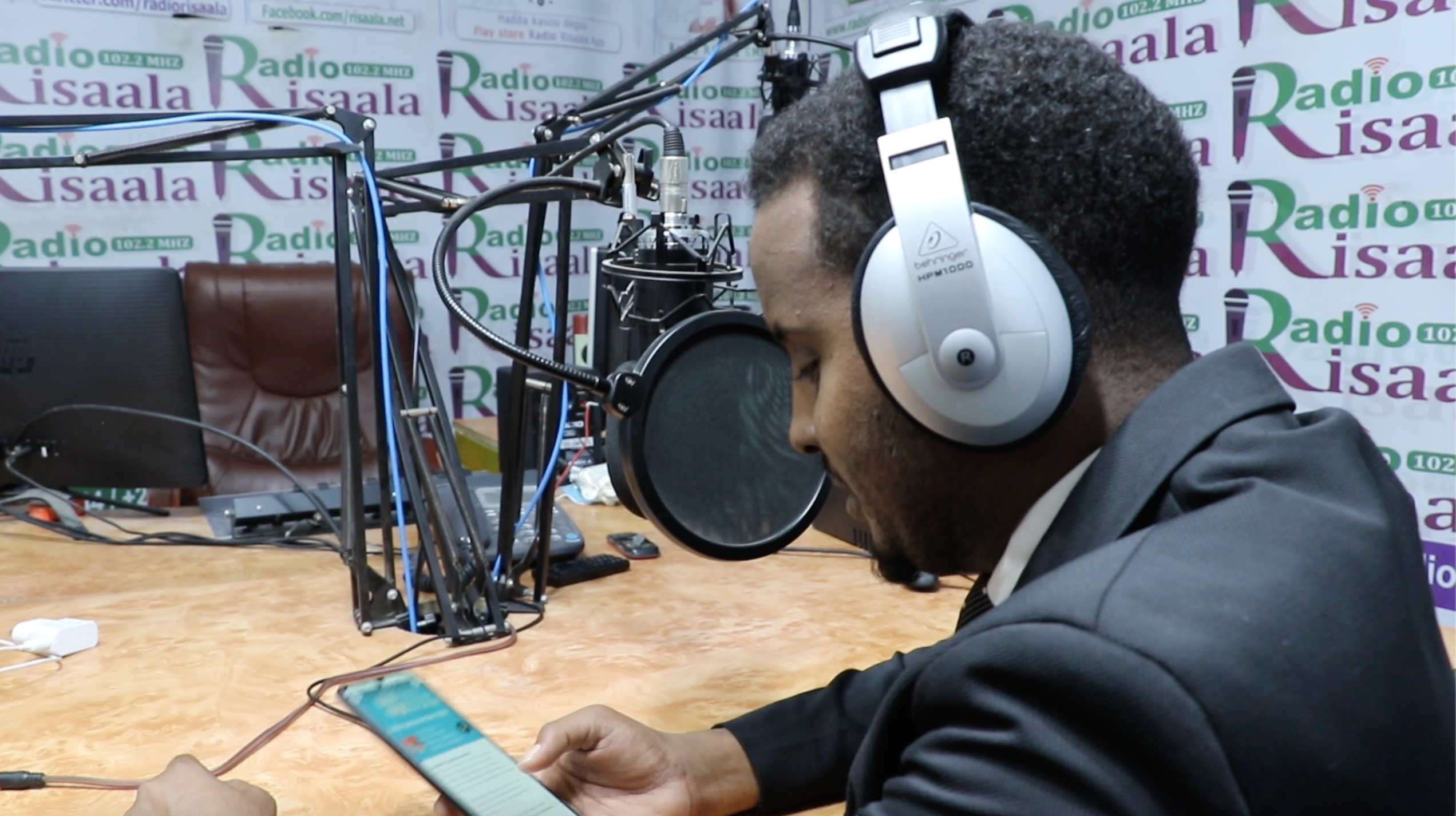MOGADISHU, Somalia, 03 May 2021 – Facebook has become a platform for online attacks, death threats including threats of beheadings against journalists in Somalia and their families amid an increase of hate speech, incitement to violence and calls for murder targeted to media workers and critics, a new survey by Somali Journalists Syndicate (SJS) has found.
SJS is also concerned about the use of Facebook’s Community Standard as an excuse to block and censor independent and critical reporting by Somali journalists and media houses.
In the past six months, SJS interviewed 50 journalists and representatives from independent media outlets and content creators operating in Somalia, who described how they were censored and silenced by Facebook. Amid the mounting threats and out of fear some journalists have resorted to self-censorship. The perpetrators of these attacks include government employees and known officials, as per SJS investigations of more than 30 press freedom violation cases in the past six months. The Somali Federal Government also uses online trolling groups intended to manipulate social media, harass, intimidate and even threaten journalists and critics of the government. Journalists’ families were also targeted.
Unfortunately, no action has been taken by Facebook so far despite promising to react after complaints were raised. Journalists interviewed said Facebook did not respond to them when they flagged the threats on their live. Since mid-last year SJS has been in contact with Facebook’s East Africa and Sub-Saharan Africa team.
The Facebook accounts of 16 individuals – mostly journalists – were permanently deactivated or deleted in 2018 and 2019 alone after they published critical content on their accounts, as documented by Amnesty International in February 2020. There were also attempts to hack the Facebook accounts of five journalists, while the accounts of four others were compromised.
With the absence of fact checking system in Somalia, the spread of disinformation and propaganda on social media have increased to unprecedented level since the eruption of the 2017 Gulf diplomatic crisis. Editors and journalists interviewed by SJS said the rise of “fake news” and the proliferation of doctored narratives that are spread by humans and bots online are challenging the local media houses. With more than 34 percent active users in Somalia, Facebook has become the main platform for this disinformation campaigns.
Unable to fact check everything online, the local media houses and journalists are now among the victims. The most recent example is the reporting of a premature obituary of a popular female singer, who was still alive, by several media outlets last week causing painful moments for the singer’s family and friends. Again, the source of this fake death was a Facebook page which is still active.
“We are facing a big problem. We are in a war against disinformation. Our reporters find it difficult to distinguish between truth and falsehood. I don’t think Facebook’s content moderators have the understanding what is happening in Somalia,”said an online journalist Mohamed Jibril.
“Fake news on Facebook tricked me several times. The government and its Arab allies spread their own propaganda on social media. There is no way to distinguish between truth or falsehood. You can certainly see how Facebook has rapidly become the platform of choice for these groups,” said Halima Ali, a female radio producer in Puntland.
Attacks on the media and journalists
Last week, Somali police raided Radio Mustaqbal, tortured journalist Bashir Mohamud Yusuf and confiscated the station’s equipment. Coordinated online groups then begun attacking other media houses and journalists by publishing journalists’ names on Facebook and calling for beheadings. One Facebook page used by these groups is still active as of the weekend even after it has been flagged.
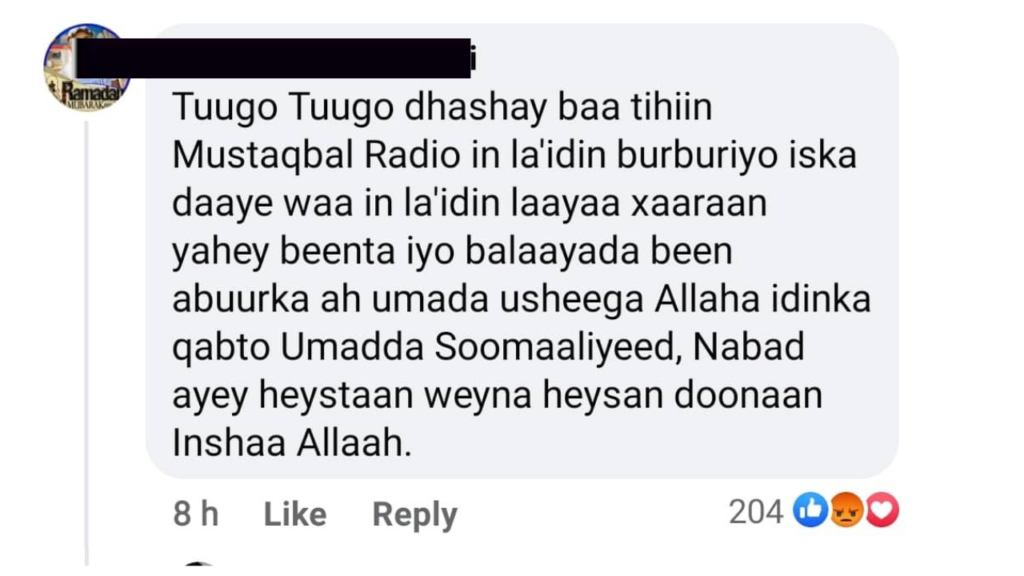
FB_Threat_screenshot1 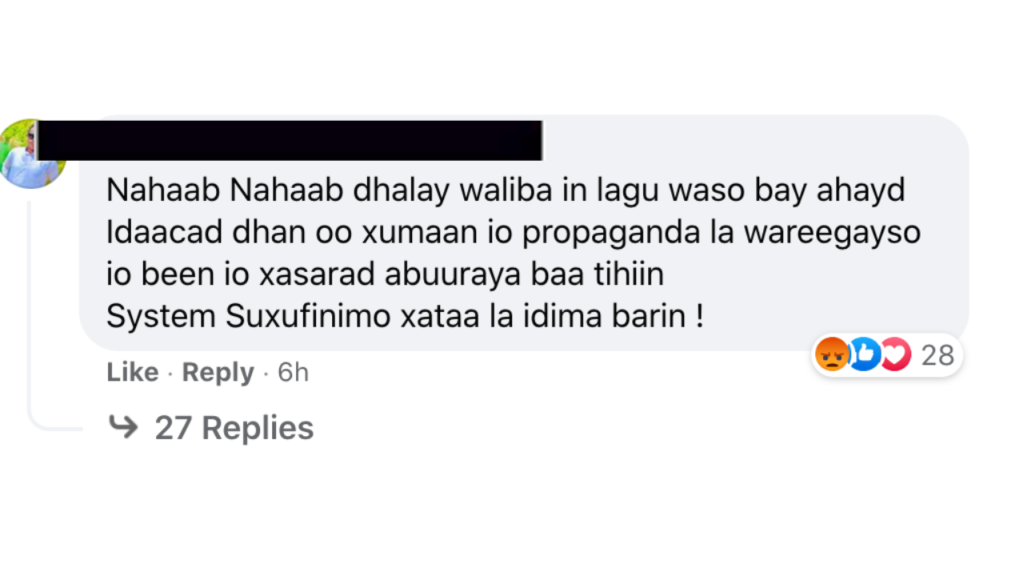
FB_Threat_screenshot2 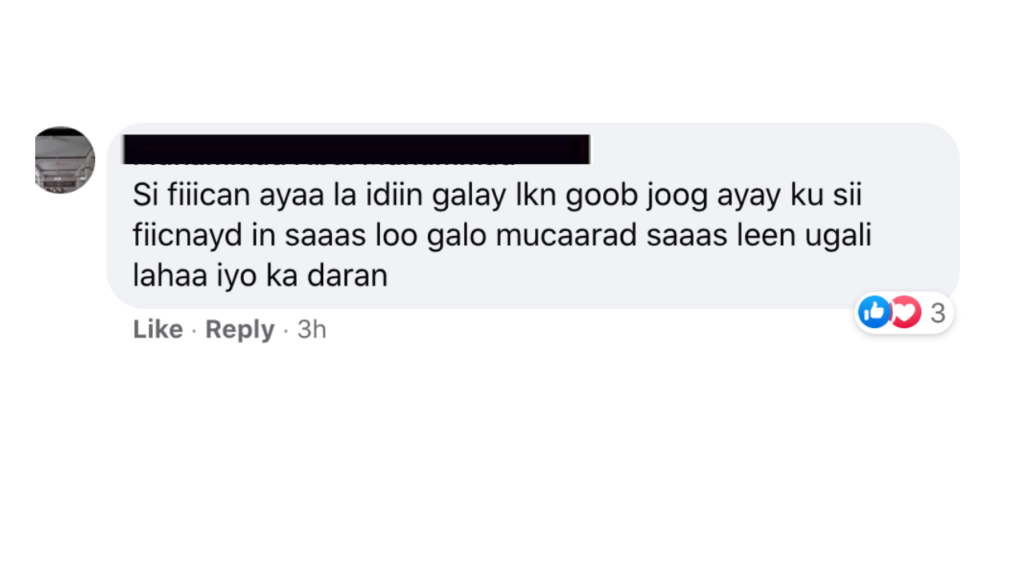
FB_Threat_screenshot3 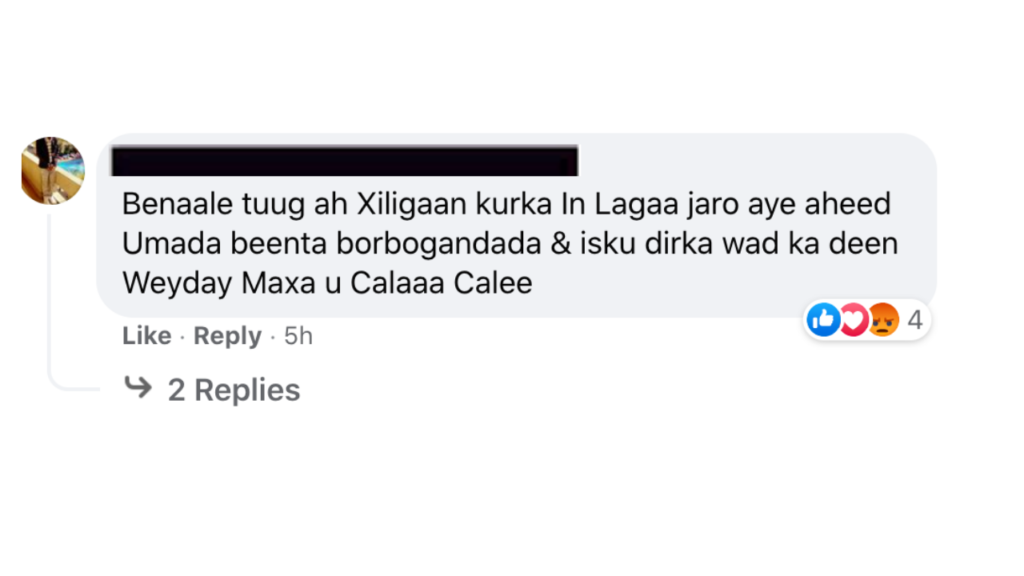
FB_Threat_screenshot4
“I was directly targeted with death threats. I reported to Facebook by filling its online complaint form, but unfortunately Facebook did not respond. Now I’m offline and I’m afraid to walk to my workplace because I’m too scared for myself and for my family,” said one affected journalist.
Women journalists in Somalia are routinely subjected to sexual harassment and other threats for reporting politics and criticism of the government and issues related to the security causing many of the female reporters to refrain from taking up certain assignments for their own online safety.
“Facebook and other social networking sites are not safe nowadays. After I reported the recent clashes in Mogadishu, I was immediately attacked online by trolls who sent a picture of my children and my home. I was shocked, I thought that they would come and kill me that night,” said a female journalist who works for a local TV station.
Al-Shabaab, the federal government and Somali regional states openly promote their content including propaganda information on Facebook. These campaigns include disinformation intended to discredit political opponents, drown out opposing views, or undermine trust in the critical news reporting by the journalists.
On 1 March this year, an online independent journalist Jamal Adan Farah was shot dead in Galkayo. A member of Jamal’s family told SJS that he had been receiving death threats on Facebook weeks before his death because he was “too critical to the government and al-Shabaab” on Facebook.
“The threats on press freedom, spread of hate speech through polarized voices and incitement to violence are very worrying trend. It is also shocking that these activities are taking place on Facebook with very limited or no accountability. Already the biggest threat is felt by Somali journalists,” said Abdalle Ahmed Mumin, the Secretary General of Somali Journalists Syndicate (SJS), “We are very concerned that Facebook is not a safe platform for journalists anymore.”
“On World Press Freedom Day, we urge Facebook to immediately review its safety measures to ensure the platform becomes reliable for journalists in Somalia. We also call for Facebook to make sure that it does not suppress press freedom. Facebook should tackle the dangers of disinformation and attacks targeting Somali journalists who have been operating in unsafe environment,” Mumin added.
